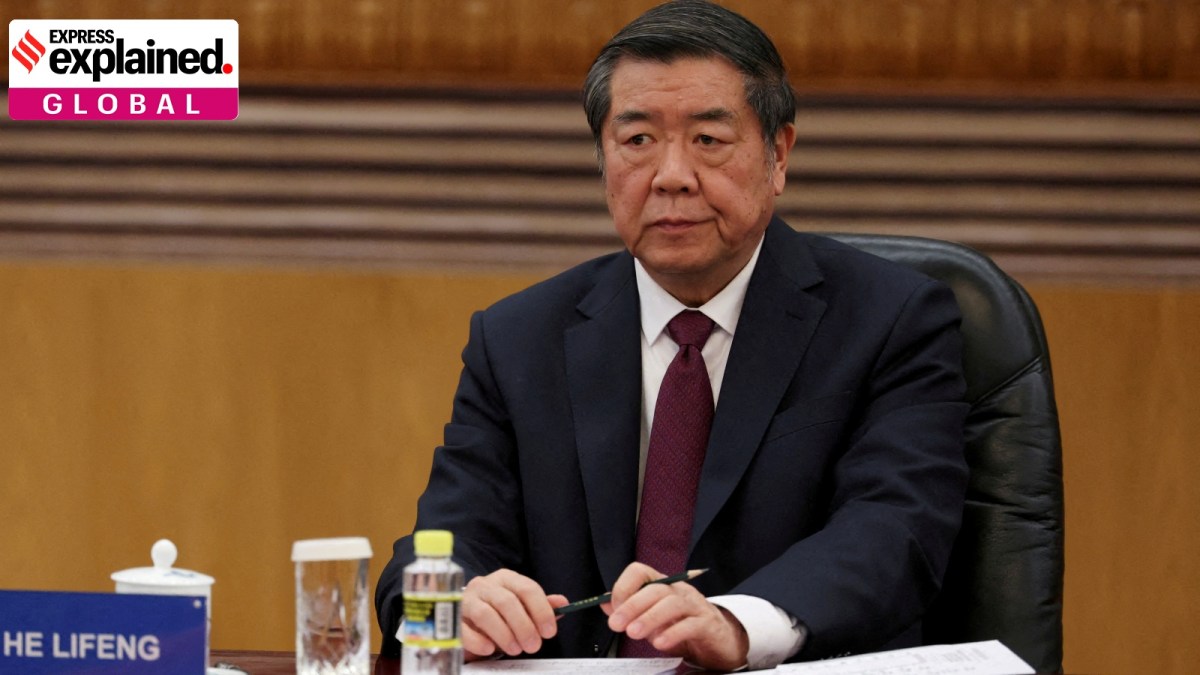The United States and China have significantly lowered tariffs on each other’s exports, a better-than-expected outcome of the weekend’s talks in Switzerland between their trade representatives.
US Trade Representative Jamieson Greer and Treasury Secretary Scott Bessent announced at a press conference on Monday (May 12), that the two countries had agreed on a 90-day tariff pause, and that they would reduce reciprocal tariffs.
In effect, the US tariff on China is now 30% (compared to 145% earlier), and China’s tariff on the US is at 10% (125% earlier). Markets welcomed the news, and the US dollar and the Chinese renminbi both strengthened in response.
The two countries also agreed to establish a “mechanism to continue discussions about economic and trade relations”. Vice Premier He Lifeng, who led the talks in Geneva from China’s side, has been appointed to represent China in future meetings.
He Lifeng has increasingly engaged with Western business leaders in recent months. Those who have met him have painted a mixed picture of a man who is now emerging as a leading figure in determining the course of trade among the world’s two biggest economies.
So who is He Lifeng, and what is known about him?
The rise of He Lifeng, and his close ties with President Xi Jinping
In a 2024 profile, The Wall Street Journal termed him as “one of the men holding the keys to the Chinese economy.” He (pronounced “huh”) is a career bureaucrat who joined the Communist Party of China in June 1981.
Story continues below this ad
Hailing from the southeastern city of Xiamen, he studied government finance and holds a doctoral degree. In the 1980s, when there was a focus on attracting foreign investment to the region, He Lifeng was directly involved in the efforts made by the city government to this end.
He Lifeng became acquainted with Xi Jinping when both men were in their early 30s. He was tasked with working with Xi, who had arrived in Xiamen as a newly appointed Deputy Mayor.
The friendship between the two men is said to have aided the rise of He Lifeng. “Soon after Xi became China’s Vice President in 2008, marking him as the country’s likely next leader, He was transferred to the northern city of Tianjin — closer to Xi’s orbit in Beijing,” The WSJ report said.
Premiers, Vice Premiers, and the Chinese economy
As President Xi surrounded himself with loyalists on his way to the top position in China in 2013, and then worked to steadily consolidate his power, He Lifeng was given a place in his close circle.
Story continues below this ad
Subsequently, He Lifeng would take on bigger roles in economic planning, where he was aligned with Xi’s worldview on maintaining state control over the economy. From 2017 to 2023, he headed the National Development and Reform Commission, a major government planning agency.
In March 2023, He Lifeng was endorsed as a Chinese Vice Premier. Occupants of this post work directly under the Premier, who is the second most powerful political figure in China. He Lifeng is one of four Vice Premiers who are working under Premier Li Qiang currently.
The Premier also holds the responsibility for managing the economy. China’s Premiers and Vice Premiers have often played important roles in the economic story of the country.
Former Vice Premier Liu He was a Harvard-educated, English-speaking adviser to Xi, “who supported many of the same economic reforms that Washington had sought for years,” the Financial Times reported.
Liu was involved in the trade talks with the US during Donald Trump’s first term in the White House (2017-21).
Story continues below this ad
A senior Chinese interlocutor with an evolving style of interactions
Compared with a figure like Liu, He Lifeng marks a change. He Lifeng is a non-English speaker who has never lived or studied abroad. But analysts say that his proximity to President Xi makes him an important voice, one that people interested in doing business with China have to listen to.
In a recent report, Reuters said it interviewed 13 foreign investors and diplomats who had met with He Lifeng over the past year.
“They described the 70-year-old’s evolution from a stiff Communist Party apparatchik with non-existent English and a reluctance to stray from prepared remarks into a more confident figure who has impressed them with his ability to get things done,” the report said.
Story continues below this ad
Thus, meetings with He Lifeng in recent times have tended to produce better results than earlier meetings – in which he would generally repeat the party line and give dense answers to questions, quoting from official documents.
So far, He Lifeng has met the likes of Goldman Sachs president John Waldron, Pfizer chair Albert Bourla, Apple boss Tim Cook, and Nvidia founder Jensen Huang.
Citing a Chinese political consultant, the FT reported, “In his meeting with Huang, the vice-premier chatted about his family’s Hokkien background — a language spoken widely in Fujian and Taiwan, including by the tech billionaire”.
He has also met the former US Fed Chair Janet Yellen multiple times.
